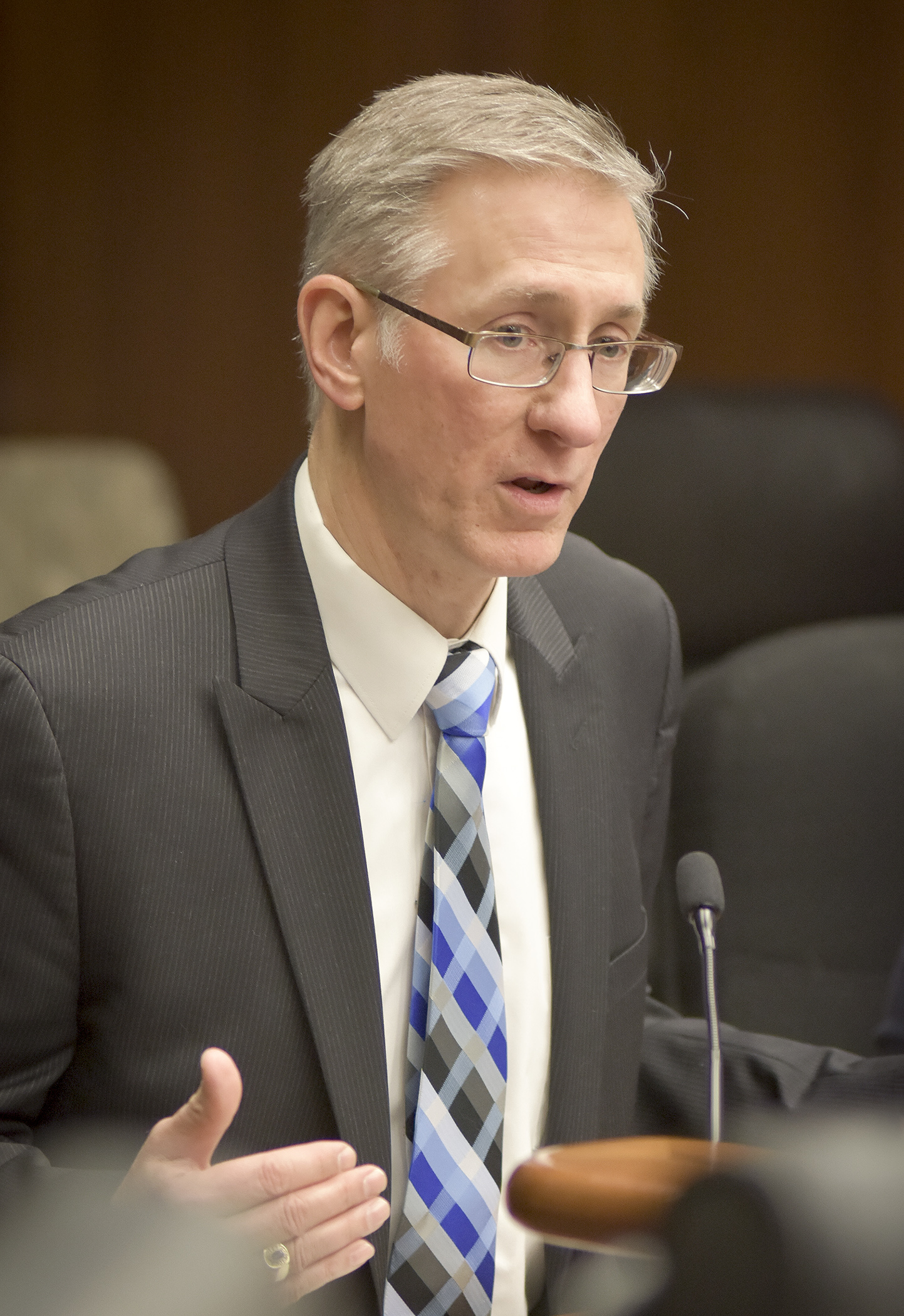Rural health care problems include lower incomes, fewer doctors
Just one-sixth of the Minnesota's doctors practice in rural areas. Services are further apart than in urban areas and often more difficult to access.
“We need sustainable, long-term, affordable, solutions in rural communities,” said Steve Gottwalt, executive director of the Minnesota Rural Health Association.
 Steve Gottwalt, executive director for the Minnesota Rural Health Association, presents the “2017 State of Minnesota Rural Health” to the House Health and Human Services Finance Committee Feb. 16. Photo by Andrew VonBank
Steve Gottwalt, executive director for the Minnesota Rural Health Association, presents the “2017 State of Minnesota Rural Health” to the House Health and Human Services Finance Committee Feb. 16. Photo by Andrew VonBankSevere workforce shortages are compounded by the fact that rural Minnesotans are, on average, older, less healthy, and have lower incomes than their urban counterparts, Gottwalt told the House Health and Human Services Finance Committee Thursday during a presentation of the “2017 State of Minnesota Rural Health.” No action was taken.
Older people often require more health care and depend more heavily on Medicare coverage, while those with low incomes rely on Medicaid. Since public health care programs don’t always fully reimburse providers for the cost of care, it strains rural health care facilities, Gottwalt said.
“We have big gaps in our service,” said Todd Lemke, director of pharmacy for CentraCare Health System. “People are paying large deductibles (and) choosing not to pay for products that they really need, services that they really need. We see that every day.”
Opioid abuse is a particular problem in rural areas as treatment programs are few and far between, Gottwalt said.
“It is an epidemic with too many people dying, too many people winding up at hospital with opioid abuse problems,” he said.
Legislation passed in 2015 allows more opportunities for the use of telemedicine, which circumvents the struggle to find highly qualified people willing to live in rural areas and can be used in treatment, monitoring, education and crises response, Gottwalt said.
However, limited broadband access and “the caps on tele-health visits and the limits of the providers who can use it are barriers to getting these resources up to rural areas,” he said.
Related Articles
Search Session Daily
Advanced Search OptionsPriority Dailies
Legislative leaders set 2026 committee deadlines
By Lisa Kaczke Legislative leaders on Tuesday officially set the timeline for getting bills through the committee process during the upcoming 2026 session.
Here are the three deadlines for...
Legislative leaders on Tuesday officially set the timeline for getting bills through the committee process during the upcoming 2026 session.
Here are the three deadlines for...